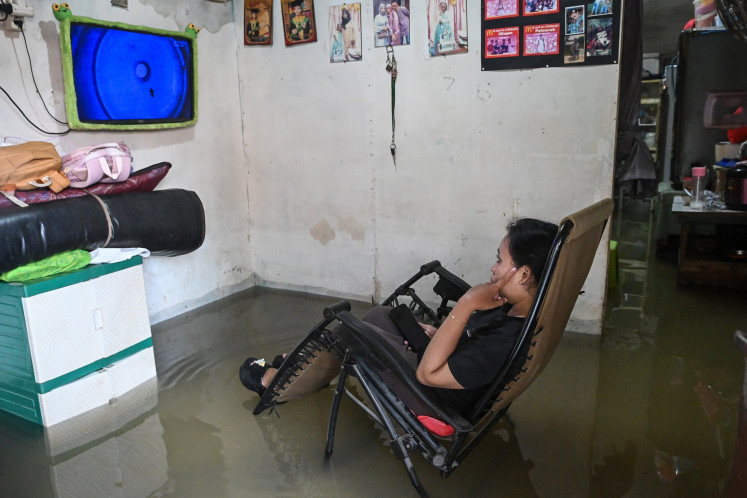Popular Reads
Top Results
Can't find what you're looking for?
View all search resultsPopular Reads
Top Results
Can't find what you're looking for?
View all search resultsAiling hospitality industry
People are unlikely to plan vacations when the economy is weak and the administration fails to create jobs, the primary driver of spending power and disposable income.
Change text size
Gift Premium Articles
to Anyone
P
resident Prabowo Subianto’s austerity measures have triggered severe and unintended consequences for the hospitality industry, leading to widespread financial distress. Months after the policy's implementation, numerous hotels have been forced to either close down or lay off significant numbers of employees to survive.
For years, government off-site meetings and official trips held at hotels and convention centers across the archipelago have been the lifeblood of this industry, contributing between 40 to 80 percent of its revenue. The sudden removal of this critical income stream has left the sector in a precarious position.
Compounding the challenges of the current year, the government has signaled that similar austerity measures will continue into the next. This decision is driven by the administration's need to fund its costly priority projects, such as the free nutritious meal program, leaving the hospitality sector to bear the brunt of the budget cuts.
The industry was unprepared for such a drastic and sudden policy shift, allowing little to no time to adapt to the new environment.
The response from the Tourism Ministry has been particularly disheartening for those affected. Instead of offering tangible support, the ministry has merely advised the industry to diversify its market and reduce its reliance on government spending. This advice is akin to telling a patient in intensive care to simply walk off their illness, highlighting a significant disconnect in understanding the severity of the situation.
A glimmer of hope emerged last week when Home Minister Tito Karnavian announced that regional governments could resume off-site meetings and official trips. Tito claimed to have received permission from President Prabowo for this temporary reprieve. This measure is expected to soften the blow for the hospitality industry in regions where business travelers are less common than in major hubs like Jakarta and Bali, providing hotels and their employees a crucial window to adapt or develop new business models.
Proponents of the budget cuts argue that taxpayer money should not be spent on luxury hotels for officials when meetings can be held in government offices. However, it remains debatable whether reallocating these funds to signature programs like the free meals for students or the state-asset fund, Danantara, represent the most effective uses of public resources.
Projections from international institutions, including the IMF, World Bank and the OECD, suggest that Indonesia's economic growth will fall below its usual 5 percent this year. This indicates that the current strategy of cutting spending to fund priority programs may be counterproductive to the overall economy.
These funds could arguably be better utilized in sectors with a higher multiplier effect, such as education, artificial intelligence development or infrastructure.
Ultimately, the economy, including the hospitality industry, requires a boost in spending, and the state budget is a key instrument for achieving this. When the government calls on hotels to find new markets, it ignores a basic economic reality: people are unlikely to plan vacations when the economy is weak and the administration fails to create jobs, the primary driver of spending power and disposable income.
As of April, Bank Indonesia's consumer confidence index has fallen for three consecutive months, and a persistently low inflation rate suggests that people are holding back on their spending.
In theory, austerity can be a useful tool for fiscal discipline. However, when implemented without foresight and nuance, it becomes a wrecking ball that indiscriminately harms vital sectors of the economy. The hospitality industry is not just a collection of hotels but a critical conduit for economic activity.
If the administration is to continue with its austerity measures, it must do so wisely. This requires targeted mitigation strategies, open communication with affected industries and a more gradual implementation of budget cuts, especially for vulnerable sectors. Simultaneously, the government should introduce bold measures to stimulate demand, such as tax incentives for domestic travel or subsidies for events held in key tourist destinations.
More than just a single industry is at stake, an entire economic ecosystem is at risk. When hotels close, communities lose their vitality, suppliers lose contracts and ancillary service providers lose their customers.
We urge the administration to reconsider its current path and to balance fiscal responsibility with sound economic stewardship.











